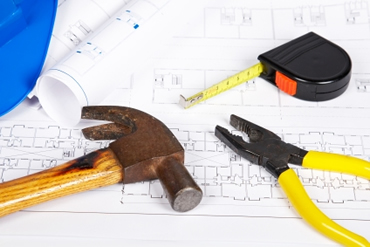|
Woodworking Techniques Tricks of the Trade
Woodworking techniques make life and your experience of woodworking easier if you know of simple tricks to help you in your efforts to create a professional finish. These suggestions I learned early in my career and have practiced ever since. I refer to a joint, simply as two pieces of timber meeting to create a longer length or two pieces coming together at a corner When fitting say skirting boards into a corner, the old trade way was to cut 45 degree mitres to both pieces creating a 90 degree corner. This method is still used to this day especially with wider boards of 9" and above but I prefer to fit one into the corner and scribe the other into it. For me there are two benefits of proceeding this way: 1. I find it quicker 2. If one or more of the two pieces is warped, the joint is impossible to make by mitres Make a Pattern for Skirting BoardsMore often than not, skirting boards have contours, names of which can be taurus, sanitary, lambs tongue etc., and quite often there are two different profiles on each piece, one on each side. Having decided on your prefered choice, one of my woodworking techniques is to make a pattern for the corner joint. Using a small length of approximately 12", cut off this 2" At both ends of the now 10" piece mark a 90 degree line 1" from the end Place the 2" piece to this line, so that you can see both profiles Carefully mark the profile of the 2" piece onto the 10" piece Repeat at the other end, so that you have opposite profiles Cut the un-profiled section with a panel saw Cut the profile with a coping saw, keeping the saw in motion as you cut the contours. Try to angle in slightly if you are unable to cut to 90 degrees As you will be cutting from face side, ie contours showing, the coping saw teeth should be facing downwards, avoiding any spelches to the face side. Procedure.. Fit one piece of skirting, straight end cuts. With the pattern, mark and cut off the profile on the piece to fit into it. Joining SkirtingOccasionally the lengths you buy are too short and you have to join two together. You don't want to just butt one to the other, it will shame you. Using the diagonal of the room to create the space, project one piece beyond the other and clamp at the overlapping points. Between these clamps, cut downwards through both pieces to an approximate 45 degree angle, keeping the saw as near as possibe to 90 degrees. This woodworking technique ensures the joint will fit together perfectly Architrave woodworking techniquesAlways fit architraves before skirting boards because then you will have something definitive to work to. Should you not have them available at least know the exact width of them so that you can mark the wall. Don't forget to add the size of quirk, which is the space between the door frame and start of the architrave. The quirk.. Usually around 4mm. Make a pattern by screing together two small pieces of timber, one protruding beyond the other by the amount you want the quirk. Run this pattern along the three door casing edges, marking with a pencil. This will ensure the space is equal all the way Head first. cut the length of the head, the piece above the door. The width between the door casing uprights plus 2 widths of Architrave plus at least 1" Cut a 45 degree mitre to one of the ends Place the cut end to the marks on the casing, mark the opposite end and cut the angle If you don't have a mitre square, either use your panel saw which has a 45 degree angle on the handle or make one.. Place a piece of timber across another..screw in the middle.. turn one of the timbers to 45 degrees and secure by another screw Uprights.. Stand them upright from the floor and mark them at the top of the header architrave.Cut to the angle Nail them to the casing with 35-40 mm oval nails, having glued the corner joints. Nail punch the nails beyond the surface. Nail the joints so that they remain flush by nailing from the side. If you need any tips or woodworking techniques, please use the Contact Coach form available in the Navigation column to the left of this page.
From woodworking Techniques return to Woodworking Tips
|





